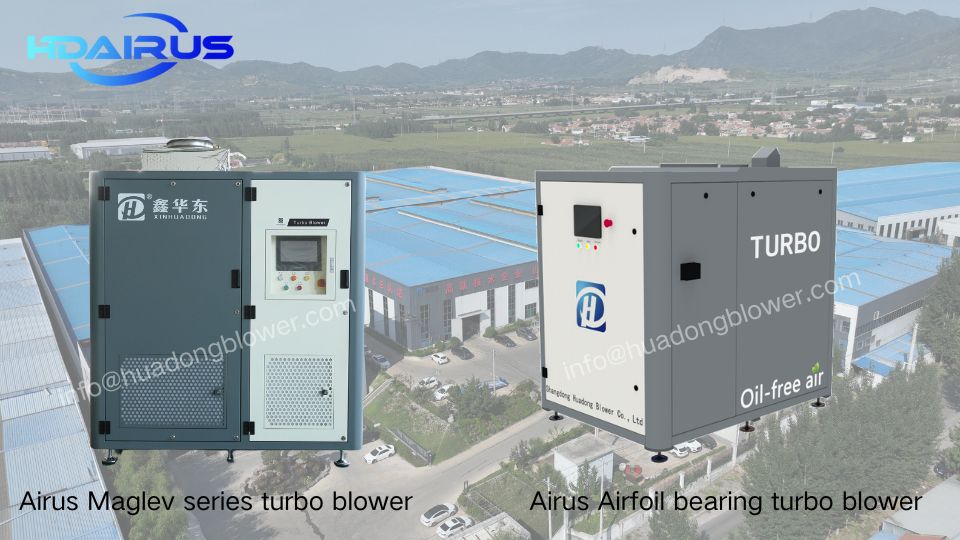In industrial settings, selecting the right blower is critical to optimizing efficiency and reducing operational costs. Two popular choices—turbo blowers and centrifugal blowers—each have unique strengths. This article breaks down their key differences to help you make an informed decision.
Core Differences in Design and Operation
Turbo Blowers are engineered for high-speed performance. Their compact design integrates a direct-drive motor and aerodynamically optimized impeller, enabling speeds exceeding 20,000 RPM. This design minimizes energy consumption while delivering high-pressure airflow—perfect for applications like wastewater treatment aeration or pneumatic conveying.
Centrifugal Blowers, on the other hand, prioritize versatility and durability. They feature a robust housing with an impeller enclosed in a volute casing. Operating at lower speeds, these blowers use centrifugal force to move air radially, making them ideal for moderate-pressure tasks such as HVAC systems or industrial ventilation.
Application Scenarios: Where Each Blower Shines
When precision and efficiency are non-negotiable, turbo blowers take the lead. Industries like chemical processing, power generation, and food & beverage rely on their ability to maintain stable airflow with minimal noise. Their integrated control systems also allow precise adjustments—critical for processes requiring consistent performance.
Centrifugal blowers, however, excel in handling large volumes of air at moderate pressures. They are widely used in building ventilation, dust collection, and cooling systems. Their simple maintenance and adaptability to harsh environments make them a go-to solution for general industrial needs.
Longevity and Maintenance: Balancing Cost and Performance
Turbo blowers are built for longevity. With advanced materials and minimal moving parts, they can operate reliably for 15-20 years with little maintenance. This makes them a cost-effective choice for continuous operations.
Centrifugal blowers, while durable, require more frequent upkeep due to their mechanical complexity. However, their rugged construction ensures a lifespan of 10-15 years even in demanding conditions—ideal for industries prioritizing flexibility over ultra-high efficiency.
Choosing the Right Blower: Key Considerations
Your decision should hinge on three factors:
Pressure Requirements: Turbo blowers for high-pressure needs; centrifugal blowers for moderate pressure.
Operational Environment: Turbo blowers suit controlled settings; centrifugal blowers adapt to harsh conditions.
Budget and Lifespan: Invest in turbo blowers for long-term savings; opt for centrifugal blowers for lower upfront costs.
Partner with Experts for Optimal Solutions
If you have any questions, contact us today to discover how we can enhance your industrial processes.







 RETURN
RETURN










